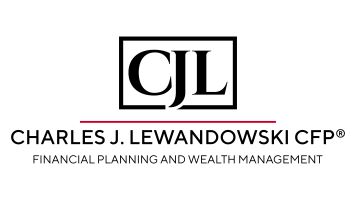Five Timely Financial Planning Questions You Should Ask Now
By Charles J. Lewandowski CFP©, MBA
Within the last 60 days, life, and its myriad of financial decisions, has been turned on its head as a result of the COVID-19 virus and the associated Federal economic response. The Federal Reserve and Congress have implemented massive programs to help reduce the economic impact of the virus. In many cases, these actions can significantly change the approach that you may wish to take with your personal financial situation. Rules that were followed prior to the pandemic, may not be the best approach at this time. Also, tax law changes, instituted at the end of 2019 with the implementation of the SECURE Act, added more complexity to today’s dynamic environment.
Here are 5 Scenarios that many have encountered. Do they apply to you?
1. Investments that had significant gains over the last year, now have losses. Many investment portfolios experienced double digit gains last year. If the investor held these positions since the Great Recession, those gains may have been significant to the point that the investor did not wish to sell because of the associated capital gains taxes. The upside of this year’s market losses is that investor may be able to harvest losses to offset large positions that may still have gains. Have you compared your capital gains to your capital losses?
2. Government backed student loan payments are suspended without interest or penalty. The Coronavirus Aid, Relief, and Economic Security (CARES) Act provides almost six months relief for student loan borrowers. During this period, payments are not required, no interest will accrue, and any payment made will be applied directly to principal. If you have debts besides student loans, does this change the order in which you pay them down?
3. Some mortgages are eligible for forbearance. The CARES Act also includes provisions regarding mortgage loans if the borrower is experiencing financial hardship. If your mortgage is backed by a US government entity such as Fannie Mae and Freddie Mac, you may be able to pause or reduce your payments for a limited time. The mortgage amount is not reduced. The forbearance provides additional time to improve your financial situation. Should you consider mortgage forbearance? (For additional information on this topic, visit the Consumer Financial Protection Bureau site at https://www.consumerfinance.gov/coronavirus/cares-act-mortgage-forbearance-what-you-need-know/ )
4. The rules for Required Minimum Distributions have changed affecting Qualified Charitable Distributions. Prior to the implementation of the SECURE Act, IRA account holders were required to take their minimum required distribution beginning at age 70 ½. Some account holders chose to directly donate these distributions to their favorite charities by using the Qualified Charitable Distribution (QCD) provision which allowed the distribution to be tax free. The SECURE act changed the required distribution age to 72. Compounding that change, the CARE Act suspends some Required distributions this year. Should you take your required distribution this year and utilize the QCD provision?
5. Many investors have cash on the sidelines. Some investors raised cash as markets dove. Others had significant amounts on hand due to concerns about market valuations. Market volatility has been at an all time high. When do I invest my cash?
These five questions do not have a one size fits all answer. Also, some of the answers may be time sensitive due to legislative sunset provisions. The proper approach requires a timely plan which recognizes an individual’s specific, unique situation. That plan, developed in conjunction with trusted advisors, can help get through uncertain times.
Has your advisor discussed these topics with you? If not, please contact me. I would be happy to do so.
Past performance does not guarantee future results. Tax services are not offered through, or supervised by Lincoln Investment, or Capital Analysts.
04/2020
